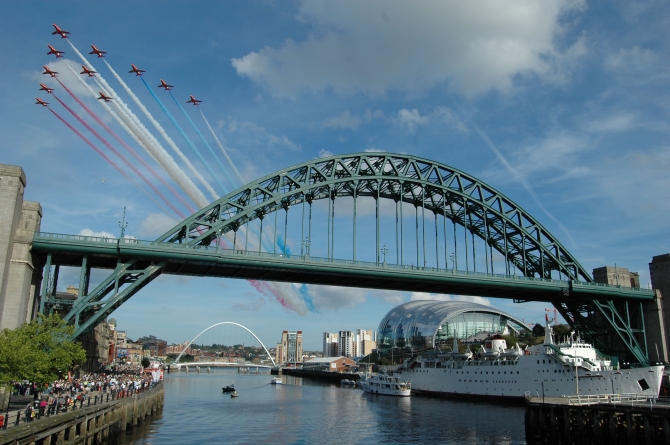It was recently reported that the restricted supply of quality industrial property in the North West had led to a fall in take-up. Similarly, the shortage of prestige office space in the North-East’s regional capital has reached such a critical level that companies are no longer considering city centre premises.

Despite a steady rise in Newcastle deals since 2010, the latest figures from property adviser BNP Paribas Real Estate show that office space take up in the city centre fell by more than a quarter last year.
Overall, take-up throughout Newcastle was 14 per cent higher than the 722,000 sq ft five year average in 2014, but that figure was eight per cent down on the previous 12 months.
“With only around 150,000 sq ft of Grade A space currently available in the city centre, and the supply of new accommodation over the next 24 months remaining restricted, upward pressure on rents is bound to continue,” commented Aidan Baker, head of business space at the firm’s Newcastle office.
He said the ongoing shortage of significant sized Grade A space within the business heart of Newcastle was reflected last year by a lack of transactions. Total take-up for 2014 was just 177,000 sq ft — down 26 per cent on the previous year.
There were only two deals of over 20,000 sq ft last year, with Newcastle University taking 34,134 sq ft at 89 Sandyford Road and the global outsourcing company Teleperformance leasing 28,300 sq ft at Baltic Place.
In contrast to the inner city shortage, Baker said the Newcastle out-of-town market had a good year with take-up standing at around 546,000 sq ft, virtually unchanged on 2013’s figures. Cobalt Business Park — the UK’s largest office complex — witnessed the largest transaction in the North-East since 2009 with Utilitywise taking a 15-year lease on 77,632 sq ft of space at Cobalt 22 at a rent of £16.25 per square foot.
The BNP Paribas survey also reveals that investment volumes are starting to rebound. Last year saw £121m pumped into Tyneside commercial property, well above the five-year average, and a staggering 230 per cent year-on-year increase.
“Investment rationale has been driven by the lack of supply in the market, with no significant speculative activity the limited Grade A space has strengthened investors’ appetite for Newcastle’s assets,” explained Baker.
“While UK institutions remain the top investors and accounted for over 70 per cent of the volume of office deals last year our report highlights that overseas buyers are considering Newcastle, which has relatively high yields when compared to the other key regional cities.”